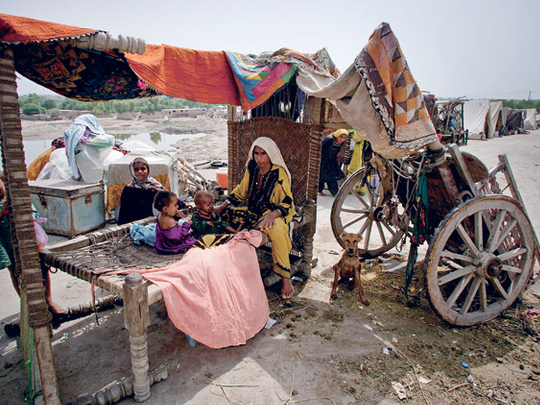
Shikarpur: Thousands of farmers have crowded this once-quiet Pakistani town. They live on the hospital's lawn, they camp on overpasses. Their fields are destroyed, covered by billions of gallons of brown soupy floodwater.
But ask those farmers about their water troubles and they'll tell you flooding is just the most recent chapter. "There is not enough water. We don't have enough for the crops," said Zubair Ahmad, a tenant farmer who came here after floods swept through his village and destroyed his fields. "Except for this year," he added, without any irony. "This year it is different."
This country, with its network of rivers that flow into the mighty Indus, struggles daily with water issues — too little, too much, in the wrong place — and rain is important to more than just farmers.
Around here, rainfall has long been reflected in economics, politics, diplomacy and social stability — and even Pakistan admits it wasn't as prepared as it could have been for the flooding.
"We are the victims of both extremes," said Shams ul Mulk, the former head of Pakistan's Ministry of Water and Power. "We are the victims of scarcity and we are the victims of surpluses." A month into the worst floods in the country's history, there was no respite on Saturday.
The swollen Indus River smashed another break early on Saturday in the levees that protect the southern city of Thatta and numerous nearby villages. That sent thousands more people fleeing for high ground, crowding the roads and leaving the city of 175,000 nearly empty.
Thousands of flood victims sought shelter on the high ground of a sprawling centuries-old cemetery outside Thatta. Many were furious at the shortage of help, and how aid came in the form of bags of food being tossed from trucks.
"The people who come here to give us food treat us like beggars. They just throw the food. It is humiliating," said 80-year-old Karima, who uses only one name, and who was living in the graveyard with more than two dozen relatives.
Almost 17.2 million people have been significantly affected by the floods and about 1.2 million homes have been destroyed or badly damaged, the UN has said.












